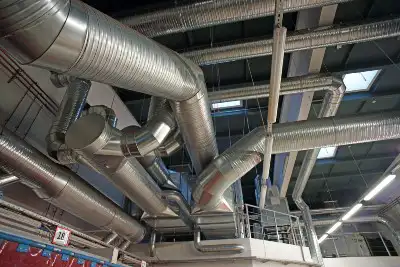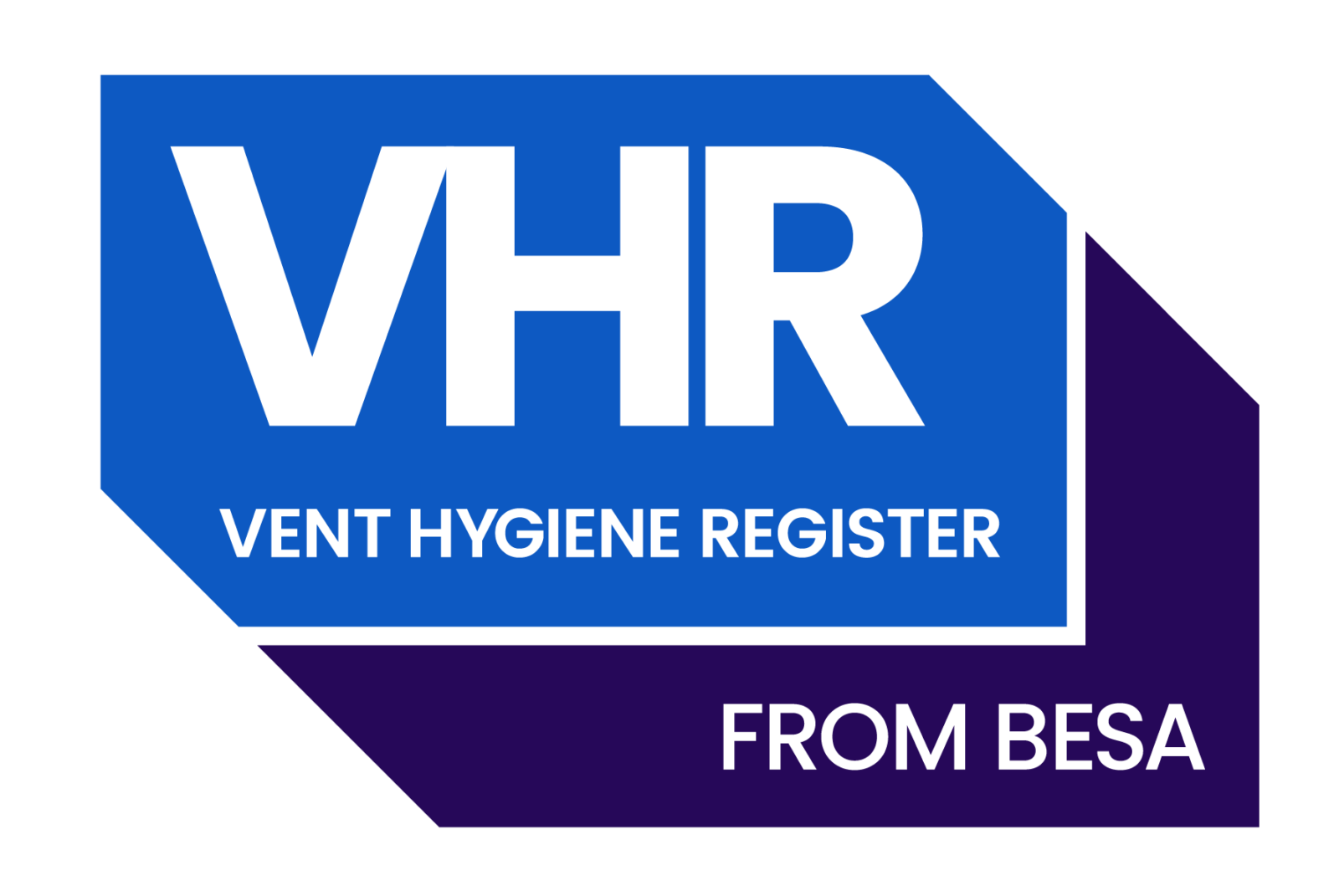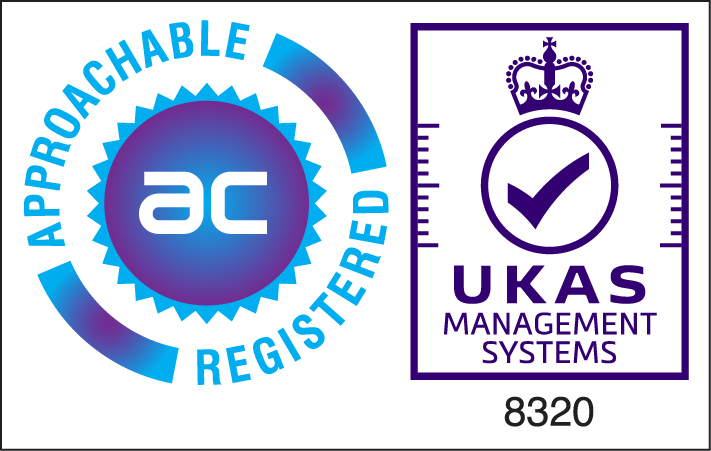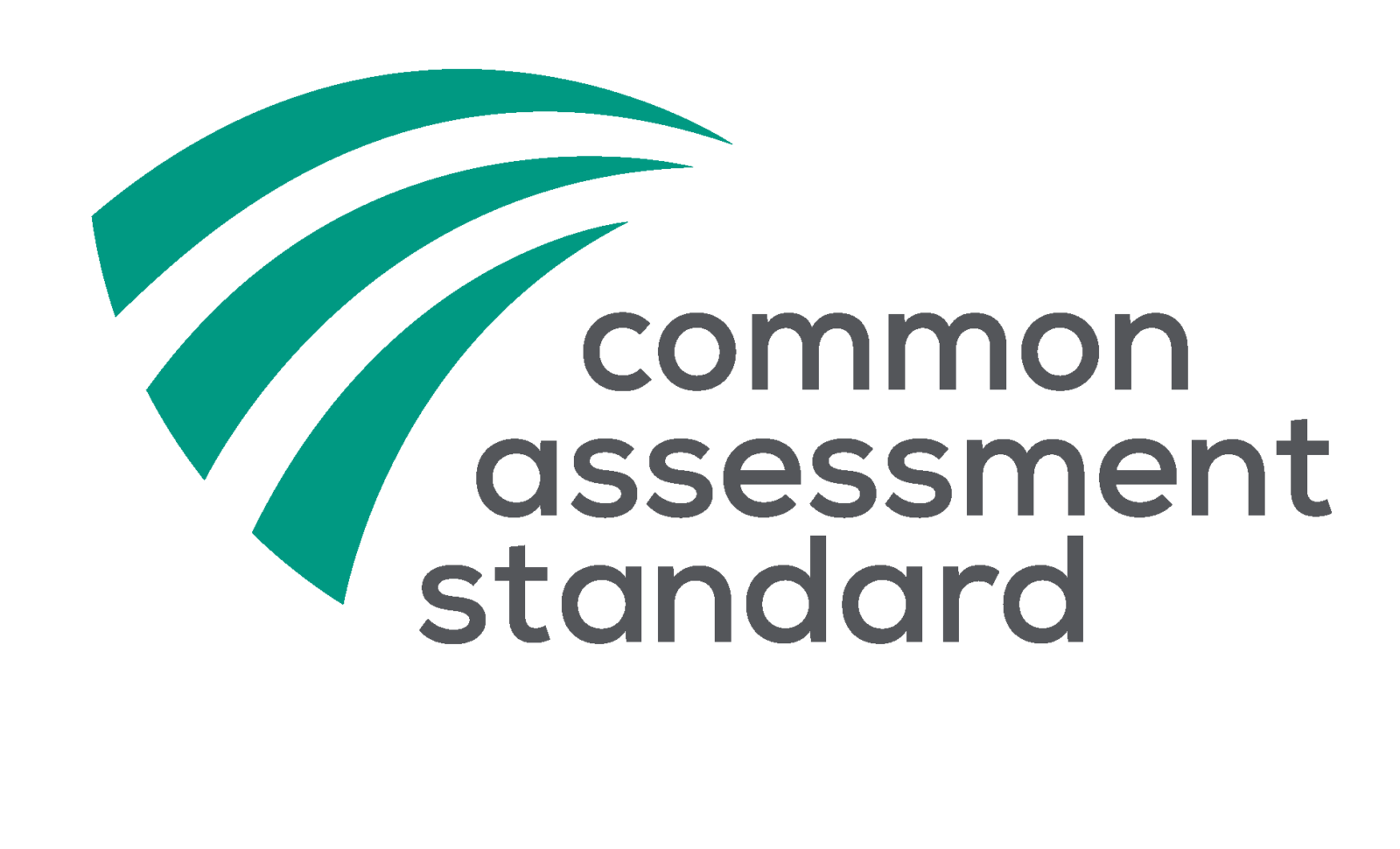The Law, Regulations, Approved codes of Practice, Guides and European and UK Standards
Ventilation, heating and air conditioning systems deliver and remove air from a building using metal ducts. These are often galvanised steel pipes, round or rectangular which are joined together and sealed to form a means of getting the air to where it needs to be, or removing it once used from the area served.
Professional ductwork cleaning involves utilising powerful motorised rotary brush systems along with air movers and vacuums designed to extract all the unwanted dust, debris, and dirt from a system. This makes the systems work more efficiently and prevents airborne particles within the building from circulating throughout the rest of the property. Regular duct cleaning is important as it alleviates many health issues discussed later. During the regular operation of heating, ventilation, and air-conditioning units, dust, pollen, and other pollutants are incidentally blown through the system creating health risks. These particles generally accumulate along the walls and bottom of the ductwork.
This article will discuss the importance of regular ductwork cleaning for commercial and healthcare buildings, the Law laid down in the Health & Safety at Work Act 1974, the Law enshrined in the Occupiers Liability Act 1984, and the Law relating to kitchen extracts found in The Regulatory Reform (Fire Safety) Order 2005 which extolls the benefits of ductwork cleaning for commercial and healthcare buildings.
The importance of regular ductwork cleaning for commercial and healthcare buildings
There are many benefits of keeping your business’s ductwork clean. Firstly, a clean ventilation system is more efficient. Ensuring that regular ductwork cleaning is carried out increases the efficiency of heating, ventilation, and air conditioning systems within a building. This, in turn, will save your company money on unnecessary additional ventilation costs. Keeping your ducts clean decreases the chances of heat loss and also ensures the prevention of trapped, unwanted moisture within spaces. Keeping duct systems clean is vital as it increases the life of your heating and cooling system.
There are also significant risks of uncleaned ductwork that pose health and safety violations for your businesses. When dangerous particles such as dust, debris, dirt, and pollen build up in ducts it increases the risk of health issues such as asthma and other respiratory problems. Other respiratory problems that can be developed from dirty ducts are illnesses such as bronchitis, allergies, infections, and even pneumonia. Dirty air ductwork can also increase the risk of you and your employees developing more serious issues such as lung cancer, and there have been many cases of ventilation-acquired permanent lung damage that have ended up being settled on the steps of the courts in the UK. No case law yet but the admission, although tacit, of Liability is implied in the largesse of these documented payouts. The average payout is around £45,000.00.So think very carefully about avoiding these obligations.
Ductwork cleaning statutes found in the Health & Safety at Work Act 1974
In 1974 the government released the current Health and Safety at Work Act. The Health and Safety at Work Act 1974 highlights the wide-ranging duties employers must adhere to. Under this act, employers have an obligation to protect the health, safety, and welfare of all their employees on their premises or working for the company. The Health and Safety at Work Act state that employers have an obligation to all staff, including temporary members of staff and self-employed workers, as well as visitors, clients, and all members of the general public who visit the premises.
This was further enhanced and clarified by The Management of Health & Safety at Work Regulations 1999 which states as follows:
Every employer shall make a suitable and sufficient assessment of—
(a) the risks to the health and safety of his employees to which they are exposed whilst they are at work; and
(b) the risks to the health and safety of persons not in his employment arising out of or in connection with the conduct by him of his undertaking,
Further powers are described in The Workplace (Health, Safety and Welfare) Regulations 1992 which very clearly states the following:
Regulation 5 – Maintenance of workplace, and of equipment, devices and systems
(1) The workplace and the equipment, devices and systems to which this regulation applies shall be maintained (including cleaned as appropriate) in an efficient state, in efficient working order and in good repair.
(2) Where appropriate, the equipment, devices and systems to which this regulation applies shall be subject to a suitable system of maintenance.
(3) The equipment, devices and systems to which this regulation applies are—
(a) equipment and devices a fault in which is liable to result in a failure to comply with any of these Regulations; and
(b) mechanical ventilation systems provided pursuant to regulation 6 (whether or not they include equipment or devices within sub-paragraph (a) of this paragraph).
Regulation 6 – Ventilation
(1) Effective and suitable provision shall be made to ensure that every enclosed workplace is ventilated by a sufficient quantity of fresh or purified air.
(2) Any plant used for the purpose of complying with paragraph (1) shall include an effective device to give visible or audible warning of any failure of the plant where necessary for reasons of health or safety.
In commercial buildings, duct maintenance, such as ensuring clean ductwork, is obligatory in line with these regulations. Ductwork in commercial kitchens is at especially high risk of breaking the Law due to potential grease build-up which causes dangerous grease fires. While general ventilation is important to a commercial building, keeping it clean is of equal importance.
The regulations found in the Occupiers Liability Act 1984
In 1984, further regulation regarding the obligations of building occupiers was published by the government in the Occupiers Liability Act. This act lays out the duties of a building occupier to persons other than his visitors, such as employees. An occupier of premises owes a duty to another (not being his visitor) in respect of any risk to their health and safety. The act was introduced to ensure that visitors to premises were safe from the risk of injury due to poor maintenance of premises.
The occupier is obliged to act if they are aware of dangers posed by a building or have reason to believe that these dangers may exist. It declares that they have a responsibility to take action to prevent the risk of injury from occurring. For this reason, ductwork cleaning is not only important but also a legal obligation. This was further enhanced and entrenched in Law by the The Workplace (Health, Safety and Welfare) Regulations 1992.
Improper cleaning of ductwork and other ventilation or heating systems poses serious health risks to visitors or employees, therefore ensuring an official and licensed company conducts this cleaning is of great importance.
Benefits of ductwork cleaning
There are many benefits to be gained from ductwork cleaning. Firstly, it improves the quality of the air within premises. By cleaning ductwork, you are preventing airborne contaminants from building up within the building. These can pose a risk to anyone with respiratory conditions and can lead to the ill health of employees or visitors to a building.
Leading on from this, by seeking professionals to conduct ductwork cleaning, you are creating a cleaner indoor environment that will become easier to maintain. By ensuring that the ductwork systems are not circulating dust and debris within the building you are reducing the amount and regularity of dust build-up on surfaces within the building. This saves time and effort from cleaning and staff can then employ elsewhere.
By ensuring that ductwork remain clean, you are also ensuring that the equipment used will have a longer lifespan. By cleaning AHUs (air handling units), A/C. units, and other ventilation devices there will be less strain on the systems which in turn leads to them being healthier for a longer period of time.
Similarly, regular ductwork cleaning will increase the cost-efficiency of the system and save your company from unnecessary expenditure elsewhere in the premises. When dust and dirt build up, systems have to work harder in order to perform to designed capacity. The harder these systems work is in direct correlation to the energy bills the user of that building receives.
Overall the maintenance of ductwork cleaning is not only a legal obligation for a business, but is also advantageous to the general health and efficiency of the equipment.
Professional ductwork cleaning by VSS Ltd
Ventilation Surveys & Services Ltd offer air hygiene services including ductwork cleaning to commercial properties nationwide. With over 12 years of experience, UK companies rely on our team to deliver a high-quality service every time. To find out more contact us today.













